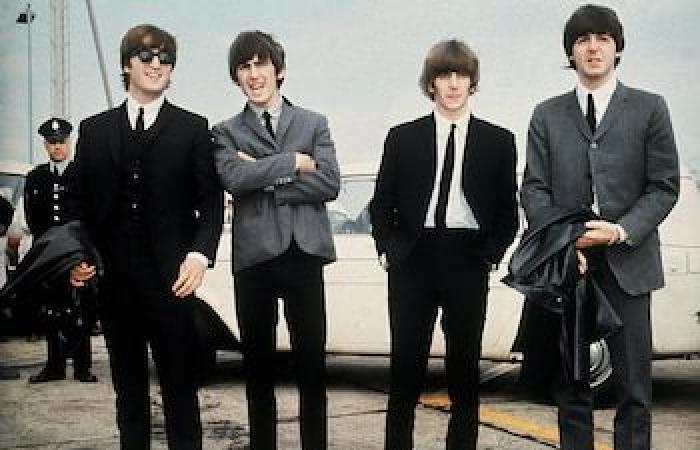Before being the icons in which they were transformed, Los Beatles They were only four boys hungry for glory. In the early 60s, in Hamburg, Germany, John LennonPaul McCartney, George Harrison y Pete Best (who would be replaced by Ringo Starr) They dedicated themselves to refine their skills in a session marathon.
According to Indiehoyin places like Indra and Kaiserkeller, the Beatles came to play up to seven hours per night, giving free rein to a unbridled rock that could have swept any other band of the time. While they immersed themselves in the nightlife of Hamburg, they became experts in a fast and electrical style, playing hymns of Chuck Berry y Ray Charles. “Twist and Shout“Summarized everything: urgency, energy and an instant connection with the public.
In Hamburg they not only learned to play faster than their own nerves, but created the machine that would be the legend: the one that would combine physical resistance, an almost mystical cohesion between them and that unique sound that would revolutionize the world.
After conquering the United Kingdomits legendary appearance in The Ed Sullivan Show of USA In 1964 he consolidated his international fame. This milestone marked the beginning of presentations in stages of unpublished magnitudes for the time, such as the Shea Stadium in New Yorkwhere they were cheered by more than 55,000 people.
Despite the technical limitations – in a time without sound systems designed for such vast crowds – the energy of the beatles managed to eclipse any acoustic deficiency.
Already established as world stars, their concerts were characterized by their brevity, rarely exceeding 30 minutes. Each show, however, was an explosive download of youth energy that kept the public in ecstasy. But physical wear, uncontrollable hysteria of fans and logistics problems led the band to question the tours format.
Finally, after your presentation in San Francisco In 1966, the Beatles abandoned the stages to concentrate on musical exploration within the study, where they would revolutionize the history of rock again.
Among the vast repertoire of the Beatles, there is a song that stands out for the intensity with which it was interpreted and the immediate response it generated in the public: “Twist and Shout.”
While it was originally recorded by The Top Notesthe Beatles version became a banner of its initial stage, loaded with sweat, passion and strength.
According to data collected by the specialized site setlist.fm, “Twist and Shout” It was the song that played the most times: 384 presentations throughout their career.

The retirement of the Beatles from live presentations did not mean goodbye to innovation, but a trench change. With albums like Sgt. Pepper’s Lonely Hearts Club Band, Revolver y The White AlbumThe group redefined the limits of pop and rock, betting on sound experimentation that concert conditions could not allow.
From that moment, his revolution would be eminently sound and study, but songs like “Twist and Shout” remained as an indelible testimony of the power that characterized its beginnings.
The history of the Beatles is marked by deep transformations, but also by the permanence of certain symbols. “Twist and Shout” is one of them: a song that accompanied its rise to stardom, summarizing the spirit of an era and the brutal energy that took them from the dark Hamburg clubs to the greatest scenarios in the world.
In each chord and in each unfortunate cry of Lennon, a fundamental truth is preserved: before the sophistication, before the conceptual albums, the Beatles were, above all, an irrepressible explosion of youth and music.








